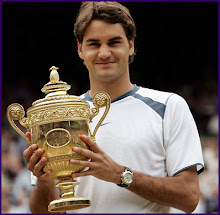WELCOME
Welcome to my Blog.......The best tips on net for tennis. Click here, if VISITING FOR THE FIRST TIME.
Also dont forget to visit my new website WWW.BHARATVERMA.IN
Also dont forget to visit my new website WWW.BHARATVERMA.IN
Support Us
Sunday, February 11, 2007
Subscribe to:
Post Comments (Atom)


No comments:
Post a Comment